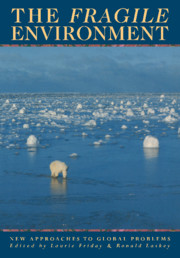6 - Exhaustible resources
Published online by Cambridge University Press: 03 May 2010
Summary
Introduction
All human activity is ultimately based on resources found in nature. Whether it is consumption, production, or exchange, the commodities which are involved can always be traced to constituents provided by nature.
A tractor requires for its manufacture iron and steel, rubber, plastics, nonferrous metals, labour of various skills, factory-machinery, water, and so on. Of these, to take an example, the steel requires for its production iron-ore, coal, furnaces, water, labour, and so forth. The furnaces in turn require for their manufacture, among other things, iron ore, brickworks, and labour. One can thus break down any produced good into the inputs involved in its manufacture and one can, if one has sufficient patience, trace them ultimately to a combination of labour and natural resources. Of course, labour too is produced and sustained by natural resources. So ultimately all commodities and services can be traced to natural resources.
My purpose in reminding you of the morphology of produced goods and services is not to prepare a chapter on the resource-theory of value. Like Marx's labour theory, such a construct quickly runs into analytical difficulties. My purpose, rather, is to set a materialistic tone so that one may in an unhampered way view natural resources in the light of their use to us in running our lives. I am not suggesting that this is the only defendable perspective; I am merely indicating that this is the attitude I shall strike in this chapter. I need to declare my position at the outset, because if you scratch a resource economist you are likely to find a nature-worshipper trying to get out.
- Type
- Chapter
- Information
- The Fragile EnvironmentThe Darwin College Lectures, pp. 107 - 126Publisher: Cambridge University PressPrint publication year: 1989
- 2
- Cited by

